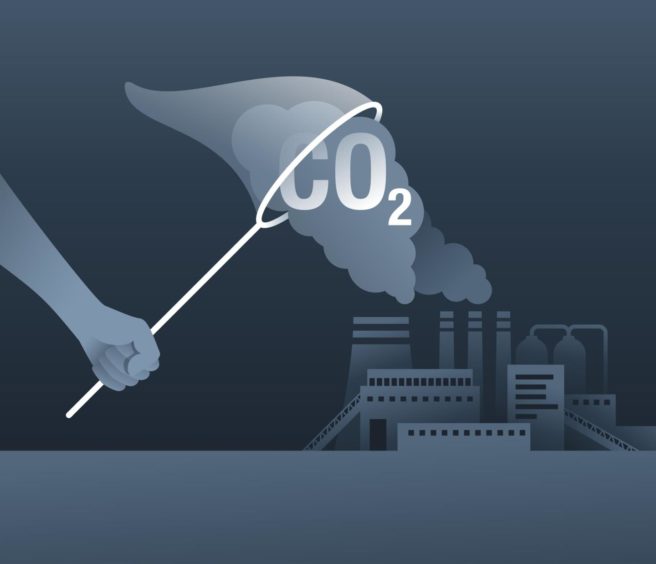
Collaboration rather than competition will “define the success” of carbon capture and storage (CCS) in the UK, an energy expert has predicted.
Richard Cockburn, head of energy at law firm Womble Bond Dickinson, said that targets at the end of the 2020’s are already “looming large” for the technology.
As such, the “rapid development” of clusters is a “necessity” for the wider clean energy agenda.
CCS involves bagging carbon emissions and securely locking them away below the earth’s surface in rock formations or exhausted gas reservoirs.
Despite harbouring a good deal of expectation, the technology is relatively untested and existing projects have encountered difficulties.
Several prospective CCS schemes are on the go in the UK, including the Acorn project in Aberdeenshire, which forms the centre of piece of the NECCUS Scottish Cluster industry group.
Westminster is due to announce which projects be in the UK’s first CCS wave in October – the goal is to have them up and running by the mid-2020s.
But there’s still a lot of work to be done to ensure the technology is able to catch the 10 million tonnes of CO2 that has been earmarked for it annually by 2030.
Mr Cockburn said: “Although some of those clusters considered for Track-1 will miss out in the immediate term and may need to wait for Track 2 or later phases, it is collaboration, not competition, that will define the success of carbon capture clusters.
“There is going to be an element of realpolitik here and pragmatism will rule. For example, some stakeholders will be members of more than one cluster. Throughout the process, there has been much sharing of best practice, and that will have to continue into the future to drive the pace needed to develop infrastructure and models for success.
“In order to develop and build the clusters, a solid, dependable supply chain will need to be in place. Clusters will need to collaborate to ensure optimisation of the supply chain to deliver the work.
“The clusters themselves are collaborative entities – NECCUS and the East Coast Cluster, for example, both bring together a number of private and public bodies. We expect to see in the future the clusters sharing information and working together for their overall objectives.”
A number of initiatives are in line to be part of the UK’s Governments initial CCS tranche.
They include Neptune Energy’s DelpHYnus project, ENI’s Hynet and V Net Zero, led by Harbour Energy.
Elsewhere, there is the East Coast Cluster, which brings together the BP-led Net Zero Teesside and Equinor-led Zero Carbon Humber schemes and the Northern Endurance Partnership (NEP), which involves Eni, National Grid, Shell and TotalEnergies.
The NECCUS Scottish Cluster, which includes the Acorn scheme with backers Shell, ExxonMobil, Storegga, Harbour Energy, Macquarie, Ineos, Petrofac and Wood, is also hoping to be given the green light to progress.
In order to be shortlisted by UK Government, the projects had to demonstrate credibly that they could be operational by 2030, be located within the UK, and meet the definition criteria of a CCS cluster.
On what happens next, Mr Cockburn said: “The UK Government is amending the CCUS phases to a sequential approach and it is now planning for the launch of Phase-2 (for selecting projects to connect into a cluster) to be made in parallel with, or very soon after, the Track-1 cluster announcement.
“The UK Government has previously confirmed that the Phase-2 application process will be open to all prospective capture projects which could feasibly connect to one of the clusters provisionally sequenced onto Track-1, regardless of whether they featured on the original submission. The UK Government has noted that this sequential approach will “help to address concerns over nugatory effort of Phase-2 applicants which may have resulted from the previously proposed overlay approach.”
“It will also allow hydrogen stakeholders time to respond to the business model consultation; the feeling is that hydrogen is running behind CCUS at present and needs to catch up.
“It is not anticipated by the UK Government that any of these changes will impact the ability for two clusters to be operational by the mid-2020s.”
Recommended for you


